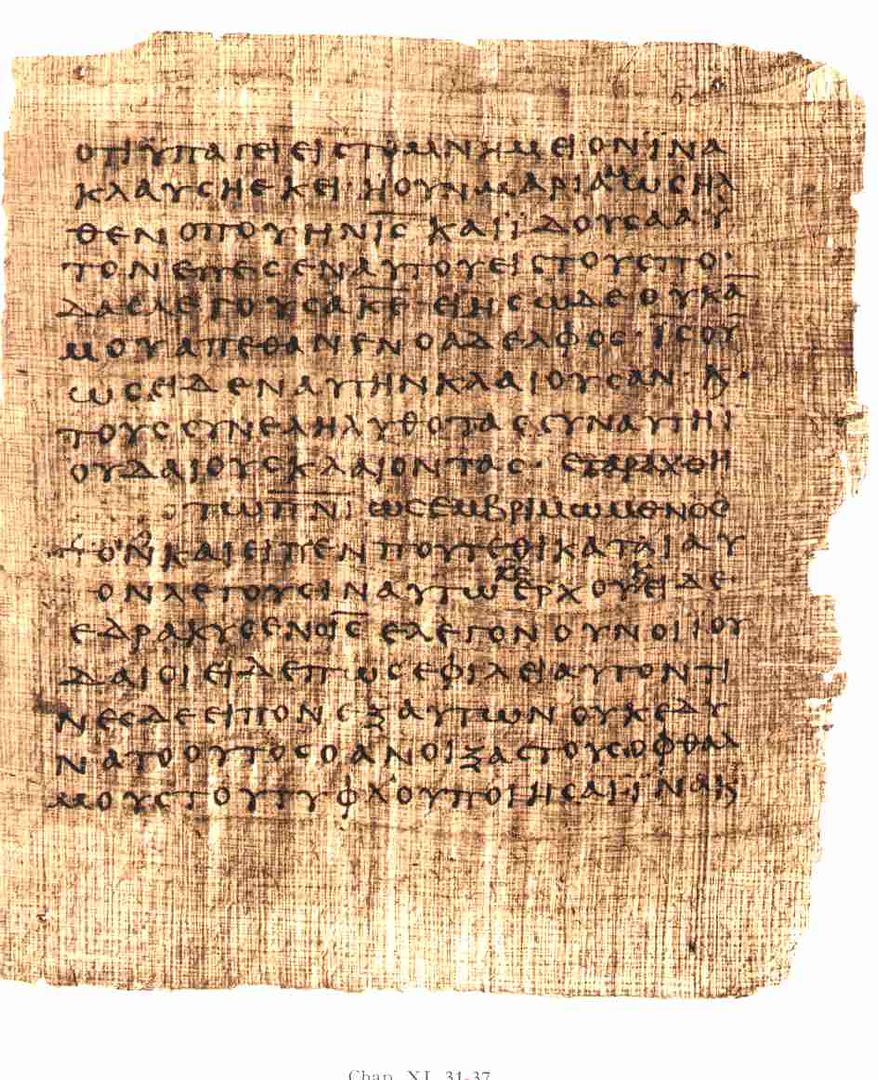Today's Sermon: Eureka!
Astonishing!
What once was lost has now been found...

Or, at least, a way to read what was once considered to be lost forever!
Decoded at last: the 'classical holy grail' that may rewrite the history of the world
Scientists begin to unlock the secrets of papyrus scraps bearing long-lost words by the literary giants of Greece and Rome
By David Keys and Nicholas Pyke
17 April 2005
For more than a century, it has caused excitement and frustration in equal measure - a collection of Greek and Roman writings so vast it could redraw the map of classical civilisation. If only it was legible.
Now, in a breakthrough described as the classical equivalent of finding the holy grail, Oxford University scientists have employed infra-red technology to open up the hoard, known as the Oxyrhynchus Papyri, and with it the prospect that hundreds of lost Greek comedies, tragedies and epic poems will soon be revealed.
In the past four days alone, Oxford's classicists have used it to make a series of astonishing discoveries, including writing by Sophocles, Euripides, Hesiod and other literary giants of the ancient world, lost for millennia. They even believe they are likely to find lost Christian gospels, the originals of which were written around the time of the earliest books of the New Testament.
The original papyrus documents, discovered in an ancient rubbish dump in central Egypt, are often meaningless to the naked eye - decayed, worm-eaten and blackened by the passage of time. But scientists using the new photographic technique, developed from satellite imaging, are bringing the original writing back into view. Academics have hailed it as a development which could lead to a 20 per cent increase in the number of great Greek and Roman works in existence. Some are even predicting a "second Renaissance". Much, much more...
400,000 fragments of priceless texts tossed in a rubbish dump!
Among the works now legible:
Parts of a long-lost tragedy - the Epigonoi ("Progeny") by the 5th-century BC Greek playwright Sophocles
Part of a lost novel by the 2nd-century Greek writer Lucian
Unknown material by Euripides
Mythological poetry by the 1st-century BC Greek poet Parthenios
Work by the 7th-century BC poet Hesiod
An epic poem by Archilochos, a 7th-century successor of Homer, describing events leading up to the Trojan War
Additional material from Hesiod, Euripides and Sophocles
Why am I so excited about this discovery?
One man's Last Supper Cup is another's Decoded Papyrus Scrap.
And, in the end, isn't it all about illumination?
THUS ENDETH TODAY'S SERMON.
Go forth and ponder...
And celebrate the scientific advances which made this discovery possible.
I mean it, damn it!







0 Comments:
Post a Comment
<< Home